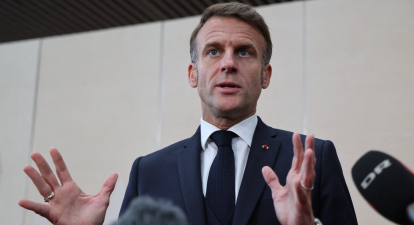Every September, leaders from 193 countries, international organizations, businesses and civil society from around the world gather for the UN General Assembly in New York. It is one of the largest dialogue platforms, bringing together the expertise and experience of countries to discuss contemporary challenges. The joint statements and initiatives adopted during these meetings shape the global agenda for the coming year.
For the fourth year in a row, the UN Global Compact in Ukraine is attracting participants to the main events of the General Assembly: at this year's session, SPP Development Ukraine, Aurora, and EPAM Systems shared their experience and willingness to be part of global transformations. What was discussed at one of the largest international platforms and how Ukrainian business sounded – we tell you in this material.
Key events took place during the 80th session of the General Assembly, during High Level Week in New York. This year, issues related to security, sustainable development, human rights, the potential of green energy (RE), as well as the development of new technologies, including AI and its impact on society, were discussed.
An important part of the discussions is the participation of the private sector, in particular companies participating in the UN General Assembly in Ukraine, which have the opportunity to present their initiatives and solutions on the international stage.
Tatyana Sakharuk,
Director General, Chair of the Council of Regional Networks of the UN General Assembly in Eastern Europe and Central Asia
The presence of Ukrainian companies at global events is a positive signal to investors that our businesses are part of the global economic space and are ready to meet the standards of international partners.
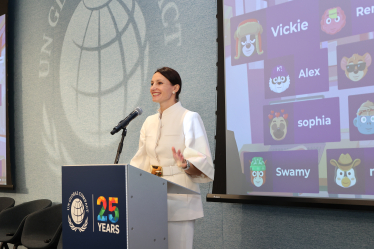
Tetyana Sakharuk, Director General, Chair of the Council of Regional Networks of the UN General Assembly in Eastern Europe and Central Asia.
Ukraine's participation also creates a reputational advantage, as companies directly communicate with partners and international organizations about the real state of affairs in Ukraine. Ukrainian business was represented at the 80th session by SPP Development Ukraine, Aurora, and EPAM Systems.
The companies shared their experiences during the events of the 80th session of the UN General Assembly: from the Private Sector Forum and events on sustainable finance, where Ukrainian businesses had the opportunity to discuss the role of the private sector in the transformation of the global economy, to an expert discussion on ethics and progress in the field of AI.
Artificial intelligence is evolving faster than the legal field and regulatory mechanisms. What does this mean for business?
The ethical implementation of AI was discussed together with business leaders and industry experts from Europe, Asia, and America at the event “Power Without Conscience? AI and the Leadership Test”, which was organized by the UN DG in Ukraine in partnership with the United Nations Global Compact Global Office with the support of SPP Development Ukraine, Aurora, and EPAM Systems.
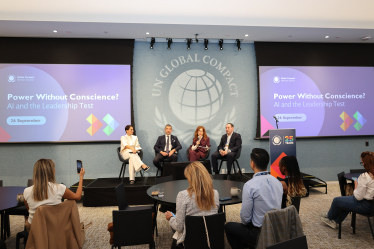
Power Without Conscience? AI and the Leadership Test
Practical conclusions for business:
- An EPAM Systems survey of 7,000 companies in nine countries found that nearly half of businesses consider themselves advanced in AI implementation. 14% of businesses plan to increase their investment in AI next year, and 43% are preparing to hire AI specialists in 2025.
Alexandra Chudner,
Director of ESG, Social Impact and Inclusion at EPAM Systems
Despite the rather optimistic forecasts, the responsibility of managers is increasing. Leaders must shape a culture of ethical use of AI, invest in team development, and help employees adapt to new realities.
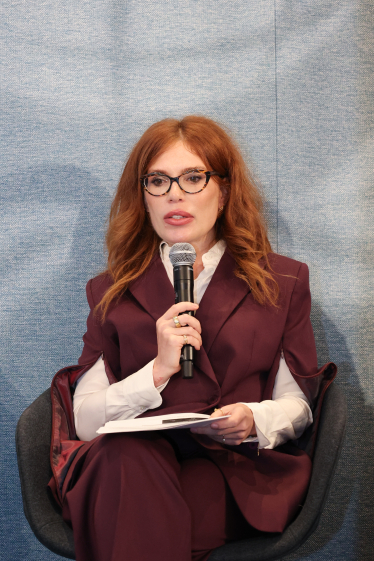
Alexandra Chudner, Director of ESG, Social Impact and Inclusion at EPAM Systems
- AI regulation is needed at both the national and company levels: governments must set clear standards, and companies must implement internal policies for the responsible and transparent use of artificial intelligence.
Such policies are already being implemented at Aurora, where AI is integrated for both clients (AI assistant in the application) and the team, in particular to optimize the recruitment process. The company adheres to the principles of transparency and protects data in accordance with GDPR – the EU regulation that establishes requirements for the protection of personal data of individuals. This act is an important criterion for entering foreign markets, as it is what international partners and investors pay attention to before starting cooperation.
Taras Panasenko,
Co-founder and CEO of Aurora
Our code of conduct includes an “AI Policies and Guidelines” section for internal and customer use. We also adhere to the principles of inclusiveness in the use of AI and invest in team education, including training all employees on basic AI tools.
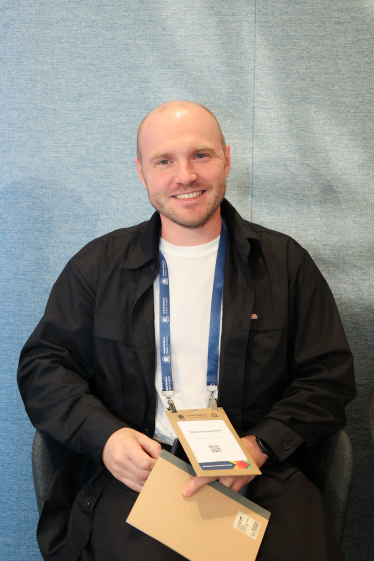
Taras Panasenko, Co-Founder and CEO of Aurora
Ukrainian companies meet with the UN Secretary-General, government officials and global business leaders at the Private Sector Forum
One of the topics of the General Assembly is sustainable investments, that is, those that take into account ESG principles: combining financial benefit with long-term value for society and the environment.
This is the theme of the annual UN Global Compact Private Sector Forum, where businesses from around the world participate in discussing the future of the global economy in a meeting with government representatives and the UN Secretary-General. The focus is on the role of the private sector in mobilizing capital, innovation and partnerships to achieve the Sustainable Development Goals.
The world loses billions every year because businesses and investors delay making sustainable investments and transitioning to new development models. Meanwhile, the potential is enormous: by 2030, such investments can unlock $10 trillion and create 400 million jobs. That is why sustainable investments are now seen as more reliable and strategically beneficial in the long term.
The Ukrainian experience of sustainable investments was presented at the General Assembly by Nadiya Petruchenko, co-founder and Chief Business Officer of SPP Development Ukraine, a member of the UN General Assembly Supervisory Board in Ukraine. The company specializes in the development and implementation of projects in the field of renewable energy:
Nadiya Petruchenko,
Co-founder and Chief Business Officer of SPP Development Ukraine, member of the Supervisory Board of the UN DG in Ukraine
Our expertise covers large solar power plants, wind and hybrid generation facilities, energy storage systems (BESS), gas-fired thermal power plants and cogeneration plants, as well as energy infrastructure, including step-up substations.
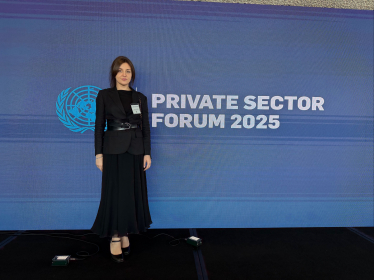
Nadiya Petruchenko, co-founder and Chief Business Officer of SPP Development Ukraine, member of the Supervisory Board of the UN DG in Ukraine
SPP Development Ukraine also invests in the restoration of energy in the deoccupied territories and in January of this year launched a solar power plant in the Kyiv region.
Another example of sustainable investment in the Ukrainian market is Aurora. Its CEO and co-founder Taras Panasenko spoke about the reconstruction of a logistics center near Kyiv that was destroyed at the beginning of the Great War. The company intends to complete the center, which will require 1.3 billion UAH.

Taras Panasenko, Co-Founder and CEO of Aurora
Why it matters: Investors are increasingly evaluating businesses on their ability to manage risks and opportunities related to environmental, social impact, and corporate governance issues – this is what determines a company's attractiveness for investment.
Despite differing views on ESG, 88% of executives believe that sustainability creates more value today than it did five years ago, and 99% of CEOs plan to scale their ESG commitments, according to the UN Global Compact – Accenture 2025 CEO Study.
Investor trust is based on transparency. When a company demonstrates clear goals and results in the field of sustainable development, investors see it as a reliable partner and are more willing to invest in its growth. Examples of such innovative sustainable financing instruments were discussed during the roundtable “Investing in Tomorrow: Sustainable Finance in Europe”, organized by the UN Global Compact in Ukraine with the support of FCDO:
-
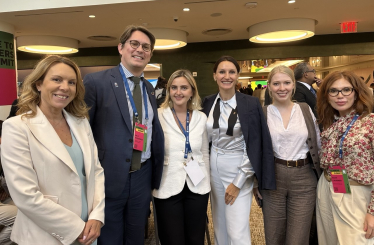
On the path to the EU, Ukraine faces a number of challenges: from integrating ESG and sustainable development principles into business processes to enshrining them in legislation. The role of the UN Global Compact in Ukraine is to strengthen the expertise of companies and provide effective tools.
Every year, Ukrainian participants present business progress at the largest global events, such as the UN General Assembly, WEF in Davos, and are currently preparing to participate in COP30 and CoSP11, as well as other key international events where sustainable development trends and the future of the global economy are determined.
